In today's competitive business landscape, project profitability is the lifeblood of organizations across industries.
Whether you're a consultancy firm, a software development company, or a marketing agency, understanding and optimizing project profitability is crucial for long-term success. One tool that has emerged as a game-changer in this endeavor is Professional Services Automation (PSA). In this blog post, we'll explore the critical role of PSA in driving project profitability and the key strategies you can employ to make the most of it.
What is PSA?
Professional Services Automation, or PSA, is the ultimate project management solution. At its core, PSA is a suite of software tools designed to automate and streamline various aspects of project management. It simplifies the often complex and time-consuming tasks associated with planning, executing, and tracking projects. PSA is like having a dedicated team of experts working alongside your project managers, ensuring everything runs smoothly.
Components of PSA
A typical PSA system comprises several key components:
- Resource Management: Efficiently allocate resources to projects based on availability and skills.
- Time Tracking: Accurately record and manage billable hours, a crucial aspect of project profitability.
- Project Planning: Create detailed project plans, schedules, and budgets.
- Financial Management: Track project expenses and revenue, ensuring financial health.
- Client Management: Manage client relationships, communications, and expectations.
- Reporting and Analytics: Gain valuable insights into project performance.
How has professional services automation evolved over the years?
PSA has come a long way since its inception. Originally, it focused on basic project management functions. However, over time, PSA has evolved to meet the growing demands of businesses in various industries. Technological advancements, such as cloud computing and AI, have played a pivotal role in shaping the modern PSA landscape. Today, PSA solutions offer a comprehensive range of features that cater to the diverse needs of organizations.
Importance of PSA in project management
In the dynamic world of project management , efficiency and profitability go hand in hand. Managing resources, tracking time, and keeping projects in control are critical components of success. Enter Professional Services Automation (PSA) - a powerful tool that can transform how you manage your projects and enhance your profitability. In this blog post, we'll explore the definition of PSA, its importance in project management, and the undeniable link between PSA and project profitability.
Why is PSA important in project management?
- Efficiency and productivity: One of the primary reasons why PSA is invaluable in project management is its ability to enhance efficiency and productivity. By automating repetitive tasks, PSA frees up valuable time for project teams by streamlining business processes. Project managers can focus on strategic planning and decision-making, while team members can dedicate more time to tasks that drive project success. This heightened efficiency leads to improved project timelines and increased profitability.
- Resource optimization: PSA gives project managers a bird's-eye view of resource availability and allocation. This feature ensures that the right people are assigned to the right projects at the right time. Organizations can also reduce costs associated with over staffing or underutilization by optimizing resource allocation. Effective resource management directly impacts the bottom line, making projects more profitable.
- Project visibility and control: In project management, visibility and control are paramount. PSA offers real-time project visibility through dashboards and reporting tools. Project managers can monitor progress, budgets, and potential issues in real-time. This level of control allows for swift and informed decision-making, ensuring that projects stay on track. With PSA, there are no surprises—only successful project outcomes.
Here are some tips experts and leaders share on allocating the right resources to overcome inefficiencies during longer implementation cycles.
The link between PSA and project profitability
In project management, profitability isn't just a goal; it's the North Star guiding every decision and action. Achieving and sustaining profitability often requires a keen understanding of your projects, resources, and client relationships. That's where Professional Services Automation (PSA) comes in as your secret weapon for elevating project profitability. A PSA solution also improves utilization rates and profit expectation.
PSA tools streamline project management, resource allocation, and time tracking, allowing for better cost control and improved efficiency. By automating administrative tasks, teams can focus on value-added activities, leading to faster project completion and increased profits. Moreover, PSA software provides visibility into project financials with real-time data, allowing managers to make data-driven decisions and quickly identify areas of improvement. So, if you want to boost project profitability, implementing a strong PSA strategy is the way to go!
A two-fold approach to looking at how PSA software helps improve project profitability is:
PSA software enhances profit margins
PSA strategies have a direct impact on profit margins. Accurate time tracking ensures that billable hours are accounted for, preventing revenue leakage. Tight cost control, facilitated by PSA, keeps project expenses in check. Businesses that implement PSA often experience an increase in profit margins as a result of these strategies. It's not just about doing more; it's about doing it more profitably.
PSA software improves long-term sustainability
PSA doesn't just deliver short-term gains—it contributes to the long-term sustainability of your business. Consistently profitable projects lead to a stable and thriving organization. Satisfied clients, achieved through effective client management, translate into repeat business and referrals. PSA is not merely a tool; it's a catalyst for lasting success.
PSA software can elevate your project management efforts to new heights of efficiency and profitability. It helps you avoid the scope creep that is common in longer projects. Its ability to streamline processes, optimize resources, and provide unparalleled project visibility makes it a game-changer in project management.
What is project profitability?
Before we dive into the specifics of PSA and its impact on profitability, let's clarify what we mean by "project profitability." At its core, project profitability measures how well a project generates profit for your business. It takes into account all the costs associated with delivering a project, including labor, materials, and overhead, and contrasts them with the revenue generated.
Significance of project profitability
Project profitability isn't just a financial metric; it's a critical driver of business sustainability and growth. It helps with:
- Resource allocation: Profitable projects enable you to allocate resources more effectively to other parts of the business.
- Client satisfaction: Satisfied clients are more likely to return and recommend your services to others.
- Competitive edge: Higher profitability can translate to more competitive pricing and better positioning in the market.
Measuring project profitability in professional services
One of the most compelling reasons to embrace PSA is its ability to measure project profitability accurately. PSA systems provide a wealth of data, enabling organizations to assess the financial health of their projects. Key metrics, such as gross margin, net profit, and cost of goods sold (COGS), become easily accessible. With this information, businesses can make data-driven decisions that directly impact profitability.
Understanding project profitability analysis and rate realization
When it comes to driving project profitability, businesses must have a clear understanding of project profitability analysis and rate realization. These two factors play a significant role for businesses aiming to drive project profitability. By implementing effective strategies and closely monitoring financial metrics, project managers can make informed decisions that contribute to the overall financial success of their projects.
What is project profitability analysis?
Project profitability analysis, on the other hand, involves evaluating a project's financial success by examining project costs and revenue. It helps businesses identify the factors that contribute to profitability or lead to losses. By analyzing various financial metrics such as gross margin, net profit, and return on investment, project managers can determine if a project is generating the desired level of profitability.
Project profitability metrics
To effectively gauge project profitability, you need to rely on specific metrics:
- Gross Margin: This is the difference between project revenue and the direct costs associated with it.
- Net Profit: After subtracting all project-related costs, this is what remains as profit.
- Cost of Goods Sold (COGS): The direct costs linked to delivering a project.
- Billable Hours: The number of hours your team bills to the client.
Key strategies for project profitability analysis
To ensure accurate project profitability analysis, businesses should consider implementing the following strategies:
1. Accurate cost allocation: Properly allocating project costs is essential for calculating accurate profitability. Project managers should allocate costs to specific projects in a way that reflects the resources utilized and avoids under or overestimation.
2. Timely and accurate data tracking: Keeping track of project costs and revenue in real-time gives project managers a clear picture of project profitability at any given moment. Implementing efficient project management tools and systems can streamline data-tracking processes.
What is rate realization?
Rate realization is a crucial component of project profitability analysis. It refers to how well businesses are able to realize the rates they have set for their services. If the revenue generated from a project falls short of the expected rate, it can negatively impact the project's profitability.
To ensure optimal rate realization, businesses should focus on the following:
1. Setting realistic rates: Setting rates that accurately reflect the value of professional services is essential for achieving profitability. Businesses must conduct market research, consider industry standards, and factor in the cost of resources to arrive at reasonable rates.
2. Regular review of pricing structures: Regularly reviewing pricing structures and making necessary adjustments can help businesses stay competitive and ensure that rates align with market conditions and profitability goals.
Rate realization metrics
To assess rate realization, keep an eye on these metrics:
- Actual vs. Expected Rates: Are you billing clients at the rates you initially set?
- Utilization Rate: The percentage of billable hours versus total hours available.
- Average bill rate: The average rate you charge across all projects.
Key strategies to driving project profitability with PSA
1. Efficient Resource Management
PSA tools provide a real-time view of your resource pool. You can see who's available, their skill sets, and their current project commitments. This allows for smarter resource allocation and scheduling, ensuring you have the right people working on the right projects at the right time.
3 strategies for efficient resource management include:
- Balance workloads: Use PSA to distribute workloads evenly among your team members, preventing burnout and maximizing efficiency.
- Expertise alignment: Assign team members to projects that align with their expertise to optimize performance and project outcomes.
- Continuous monitoring: Keep a close eye on resource utilization and make adjustments as needed to avoid bottlenecks and over allocation.
2. Accurate time and expense tracking
PSA simplifies time and expense tracking, making it easy for employees to log hours and expenses accurately. This data is crucial for understanding project costs and billing clients correctly.
3 strategies for accurate time and expense tracking include:
- Daily time logging: Encourage employees to log their time daily, ensuring accuracy and completeness in time tracking.
- Automation and reminders: Set up automated reminders and approval workflows in your PSA system to streamline the tracking process.
- Regular review: Review time and expense reports regularly to identify discrepancies and take corrective actions promptly.
3. Real-time project monitoring
With PSA, project managers can track progress, costs, and issues in real-time. This allows for proactive problem-solving and ensures projects stay on track financially.
3 strategies for real-time project monitoring include:
- Dashboard insights: Use PSA dashboards to monitor key project performance indicators (KPIs) and gain real-time insights.
- Alert systems: Implement alerts for cost overruns or project delays, enabling swift responses to potential issues.
- Stakeholder engagement: Conduct regular project review meetings with stakeholders to foster collaboration and keep everyone informed.
Try the 100% customizable, free stakeholder register template and ensure stakeholder satisfaction through the project’s journey.
4. Improved project planning and forecasting
PSA tools provide historical project data, helping you create more accurate project plans and forecasts. This leads to better budgeting and resource allocation.
3 strategies for improved project planning and forecasting include:
- Data analysis: Analyze past project performance data to identify trends and patterns, enabling data-driven decisions.
- Forecasting: Use PSA's forecasting features to predict future resource needs and revenue, allowing for proactive planning.
- Dynamic planning: Continuously update project plans as new data becomes available to adapt to changing circumstances.
5. Client relationship management
Effective client management is key to profitability. PSA tools offer features like client portals, communication tracking, and performance analytics.
3 strategies for improved project planning and forecasting include:
- Centralized records: Use PSA to maintain a central repository of client communications and project history for easy access and reference.
- Transparency: Share project progress reports and performance metrics with clients to build trust and ensure alignment.
- Feedback loop: Solicit feedback regularly and act on it to improve service quality and client satisfaction.
Why use PSA tool to drive project profitability?
In a world where project profitability is paramount, Professional Services Automation (PSA) emerges as a vital and comprehensive strategy that empowers organizations to maximize their potential. PSA encompasses a range of strategies, including efficient resource management, accurate time tracking, real-time project monitoring, improved planning and forecasting, and customer relationship management. Together, these strategies ensure that businesses not only do more but also do it more profitably.
PSA directly impacts profit margins by ensuring that billable hours are accounted for, thus preventing revenue leakage, and by maintaining tight control over project expenses. As a result of these strategies, organizations that implement PSA often experience an increase in profit margins and utilization rates. The benefits of increased project profitability through PSA are well worth the investment, leading to long-term sustainability in today's competitive business landscape. So, if you're ready to unlock the potential of PSA for your organization, now is the time to explore its possibilities. The undeniable link between PSA and project profitability can lead your business toward a future filled with successful projects and sustainable growth.
The best PSA software to improve project profitability
At Rocketlane, we truly appreciate and value the knowledge and experience that industry professionals like you bring to the table. We fully understand the complexities that you face and the challenges of your customer onboarding and delivery process. Our top priority is to offer you efficient solutions through our modern, all-in-one Professional Services Automation (PSA) software. By utilizing our PSA tool, you can enhance productivity and redirect your focus towards delivering exceptional results to your clients. We firmly believe that this will ultimately foster innovation and drive growth within your business while improving your project profitability.
FAQs: All your questions about professional services automation answered
Q: What is project profitability?
A: Project profitability refers to the financial success of a project. It's all about the balance between the revenue generated and the costs incurred throughout the project lifecycle. In essence, it's a measure of how much money is made from a project compared to how much it costs to execute.
But it's not just about the bottom line. Project profitability also takes into consideration factors like resource utilization, time management, and efficient allocation of tasks. It's about finding the sweet spot where you can maximize revenue while controlling expenses.
Q: Why should businesses focus on project profitability?
A: By focusing on project profitability, businesses can optimize their operations, make informed decisions, and drive financial success. It's a key metric that can significantly impact the bottom line and contribute to the overall success of a company.
Q: What is rate realization?
Rate realization refers to the ability to achieve the anticipated billing rates for the work performed in a project. In simpler terms, it means getting paid what you deserve for your hard work. When managing a project, it's essential to ensure that the rates are in line with the project scope and complexity. A key strategy to improve rate realization is accurate time tracking, which helps you understand the actual effort invested in a project. Additionally, effective communication with clients is crucial to manage expectations and negotiate rates that align with the value delivered. By focusing on rate realization, you can drive project profitability and create a win-win situation for both parties involved.
Q: What is project profitability analysis?
Project profitability analysis refers to the evaluation of a project's financial performance and its impact on overall profitability. It involves assessing various factors, such as revenue generation, costs incurred, and resource utilization. it helps organizations understand the profitability of their projects, enabling them to make informed decisions and optimize their business strategies. By identifying areas where costs can be minimized or revenue can be increased, project profitability analysis plays a crucial role in driving project success. It enables companies to allocate resources more efficiently, improve their bottom line, and achieve sustainable growth.
Q: How to calculate project profitability?
When it comes to project profitability, it's essential to have a solid understanding of how to calculate it. By knowing the ins and outs, you can make informed decisions to drive profitability. To get started, gather all the project costs, including materials, labor, and any additional expenses. Next, calculate the revenue generated from the project, taking into account any discounts or additional income. Once you have these numbers, subtract the total costs from the revenue to determine the project's profitability. It's essential to track and analyze this data regularly to identify areas for improvement and make smart decisions for future projects.







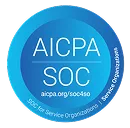
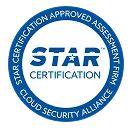

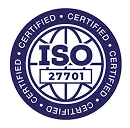









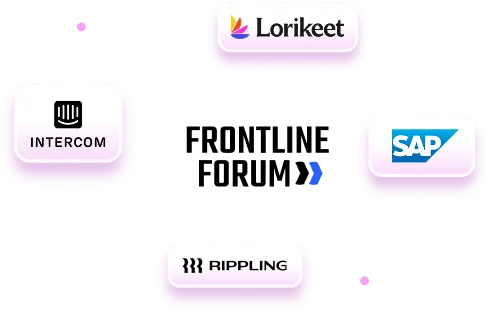
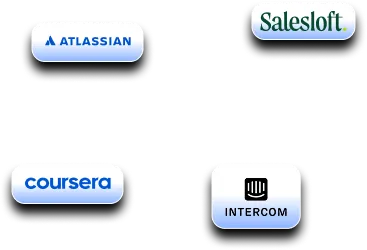


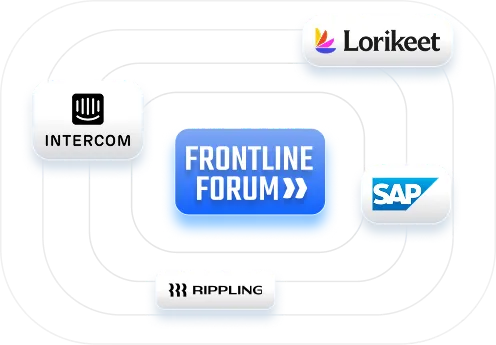
.webp)